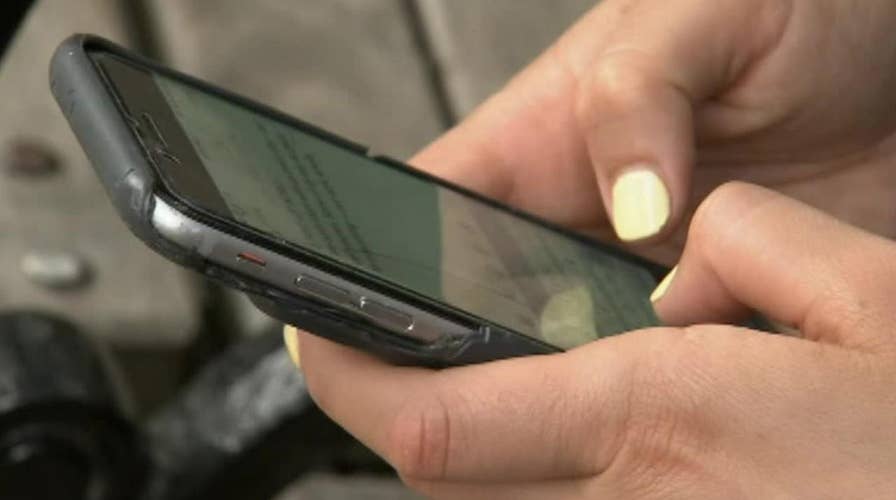Blue light from all your screens could be ruining your skin
According to experts, spending hours each day online could be having a drastic impact on the health of our skin - and it's all to do with blue light.
Look away now, because blue light from your mobile phone, laptop and other devices could be causing damage, premature aging and hyperpigmentation to your skin.
According to experts, spending hours each day online could be having a drastic impact on the health of our skin - and it's all to do with blue light.
How long do you spend each day looking at a screen?
From mobile phones to staring at our computer screens and tablets, we're clocking up hours upon hours of time exposing our skin to blue light (otherwise known as high-energy visible light).
According to Glamour, it's having a detrimental impact on our skin, with 79 percent of us checking our smartphones before bed.
Added to that, 28 percent of us will reach for our phones in the five minutes before we turn out the lights and over half of us check our devices within 15 minutes of waking up.
According to Dr. Sweta Rai, a spokeswoman for the British Association of Dermatologists, light from your screens can "cause some pigmentation problems."
"They can give you a falsely aged appearance, we see that often in darker skin people," she explained.
"If you look at a pristine face and put brown spots on it it will look aged from sun damage.
"There is some truth to the fact that blue light penetrates deeper into the skin compared to UV light.
"And that is being studied at the moment as to what effect it does have."
The effect of blue light on our skin has led to several beauty brands launching blue light-fighting products.
Earlier this year, dermatologist and clinical assistant professor at New York University Shari Marchbein, told Allure: "Visible light, especially in the blue wavelength, has become a hot topic in skin care, as there is mounting evidence that supports its contribution to photo-aging, including wrinkles, worsening skin laxity, and hyperpigmentation."
And it seems other practicing dermatologists have noticed a growing trend in accelerated hyperpigmentation.
Dr. Engelman, consulting dermatologist for Elizabeth Arden told Glamour: "Women in their early twenties come into my office with heightened pigmentation.
"When I look into the waiting room, they’re all sat staring at their screens.
"As this accelerated hyperpigmentation is developing out of proportion to their sun damage and darkening over the winter months, we know it can’t be due to UV.
"The pigment cells are feeding off this new indoor light pollution.”
Other experts recommend going hands-free (to avoid direct contact with your skin while you're on the phone) or turning devices onto night mode.
And if you struggle with acne or blemishes, switching to hands-free could minimize breakouts, too.
Dr. Mahto, author of The Skincare Bible, told Refinery29: “Spots on one cheek could be related to mobile phone use, where a dirty screen surface, combined with heat and occlusion, may stimulate the oil glands.”
If this wasn't scary enough, some experts have claimed over-exposing ourselves to screens can result in an altered face shape.
"Continuous looking down and squinting has changed the way people’s faces sit,” said celebrity facialist Nichola Joss.
Time to log off? We think so.
This story originally appeared in The Sun.









































